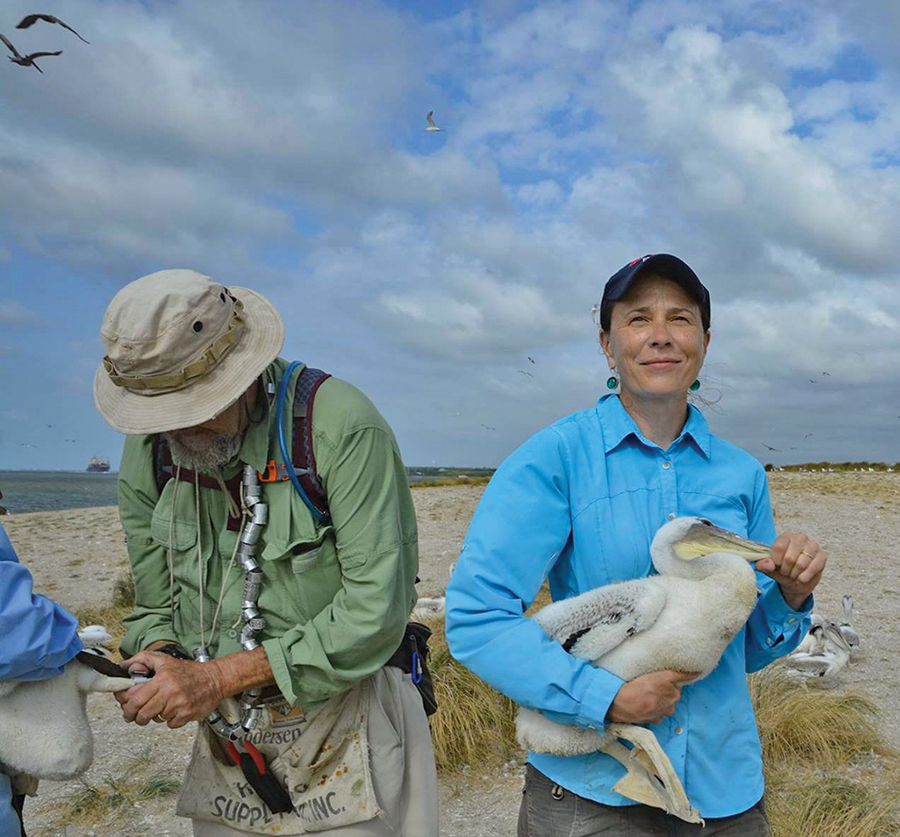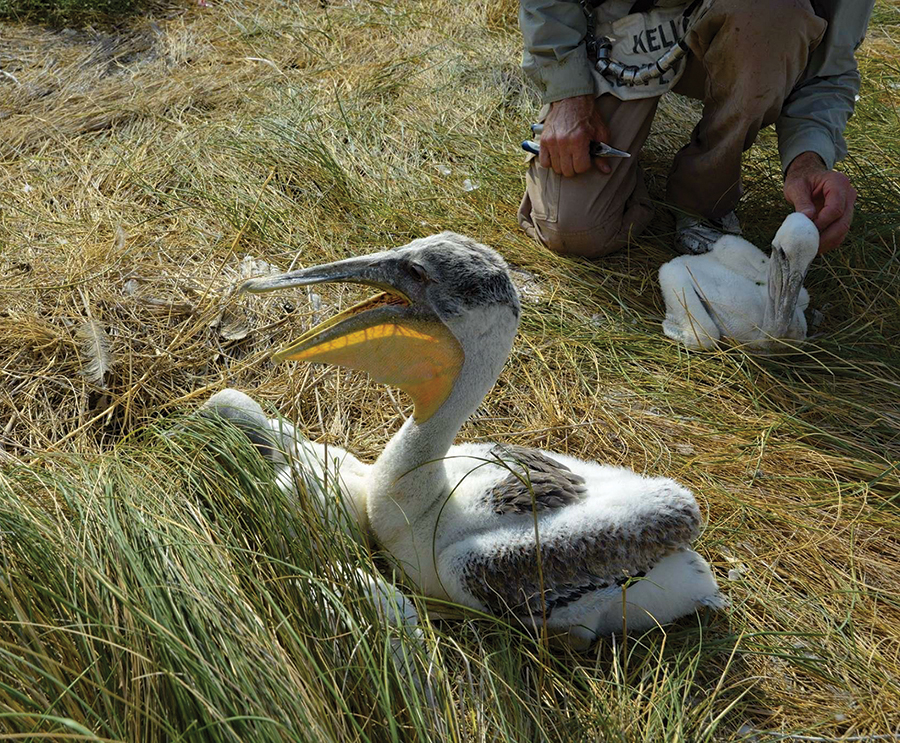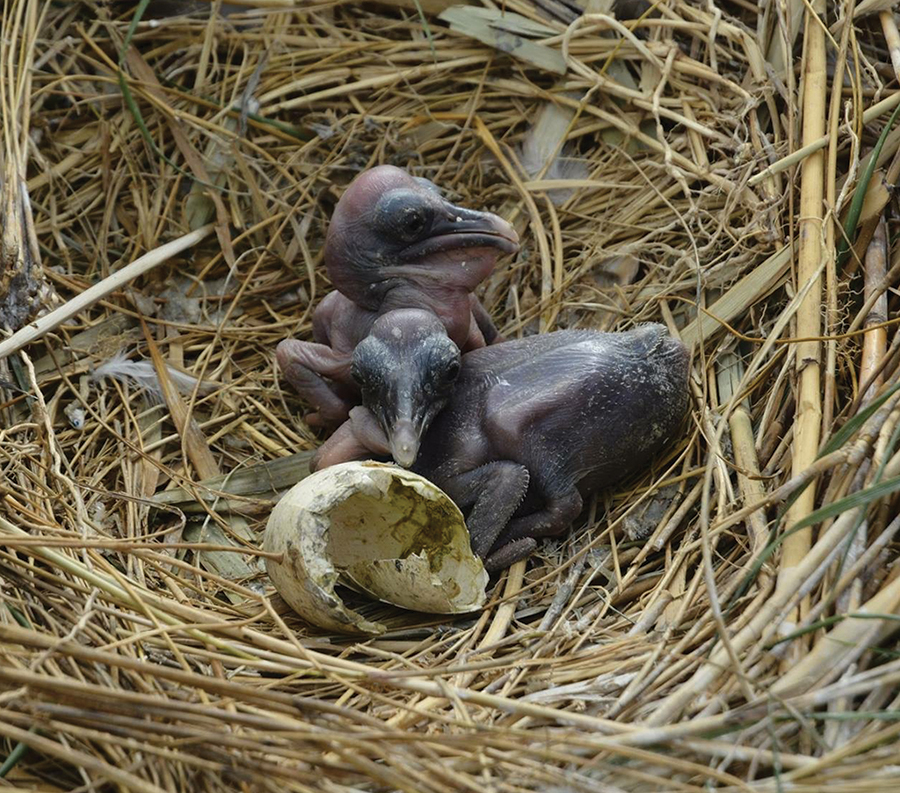Though a common sight today, pelicans still inspire awe
Photographs and story by Virginia Holman



Familiarity is its own form of blindness. Even though we love the wildlife that makes the Cape Fear coast unique, those of us fortunate enough to live here sometimes take it for granted. We’re only human.
A few summers ago, I sat on the beach with my niece and nephew. They are inlanders. I was checking email on my phone when I heard my nephew marvel at a squadron of pelicans gliding low, wingtips whisper-close to a long glassy wave face. His wonder as an outsider made me pause and set down my phone to see, really see, these massive yet graceful birds as they cruised and drafted, soared and dipped, then rose up and plunged headlong into the ocean. To see pelicans is to witness near-pterodactyls in our midst.
Pelicans incubate their eggs not by tucking them beneath their feathered breasts, but by warming them with their feet. In the 1950s and 1960s, when DDT was a widely used agricultural pesticide, the brown pelican population plummeted. DDT thinned pelican eggshells, and incubation often resulted in ruptured eggs. By 1973, Texas counted only 12 actively breeding brown pelicans. Two things saved them from extinction: Rachel Carson’s book Silent Spring, which led to DDT eventually being banned in 1972, and the passage of the Endangered Species Act. By 2009, the brown pelican population had rebounded, increasing a thousandfold.
North Carolina Audubon wants to make sure that we never take our brown pelicans for granted. Each summer, biologist Lindsay Addison and master bander John Weske monitor and band birds at local colonies, with the help of local volunteers like you and me. It’s sweaty, stinky, hot labor, but well worth it to make sure that brown pelicans thrive here for generations to come, reminding inlanders and islanders alike of their majesty.
Want to volunteer? Call Cape Fear Audubon at (910) 409-5160 or visit www.capefaeraudubon.org
Virginia Holman is a regular Salt contributor and teaches in the creative writing department at UNCW.


